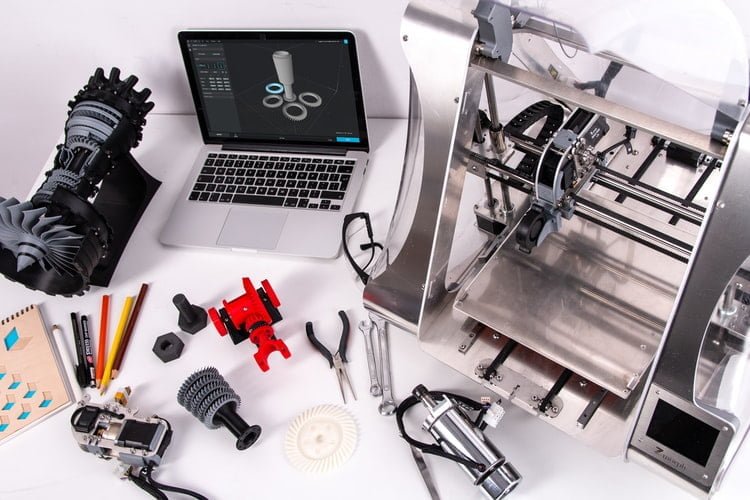How Accountants Can Build Their Skill in the Wake of Automation
by Abdul Aziz Mondal Job & Career Published on: 05 June 2021 Last Updated on: 27 December 2024

The buzz on automation is getting bigger and bigger each day in the business world. While it at times threatens some workers, especially CPAs on their job retention, some accounting firms see it as a positive curve. Automation has its footprints on everything under the sun.
How things worked a decade ago is a completely different universe from how they work now, with the advent of automation. So it is certain that the accounting profession will no longer be the same.
Well, not being the same does not mean that it would put the accountant’s job in danger. We may say that automation on the other hand simplifies the work of accountants, by removing manual elements of their work. But accountants should stay on top of these changing trends to keep them alive in the automation-steered world. They must upgrade their skills so that they can walk along with automation and other new technologies.
Here is more about how automation takes over the accounting industry and what you can do to stay relevant as an accountant.
Recent Trends in Accounting Automation-
Here are some of the automation trends that are prevailing in the accounting industry today.
Robotic Process Automation (RPA):

Marcel Shaw, Federal Systems Engineer at Ivanti explains “RPA is an advanced form of business process automation that is able to record tasks performed by a human on their computer, then perform those same tasks without human intervention.” He further adds, “RPA is a virtual robot copycat”.
RPA can automate time-consuming finance and accounting operations. For example, if your bank account balances have to be uploaded to treasury systems, RPA can format data that the treasury system can understand, update data into treasury systems, generate reports and update ledgers. Accountants can cut down costs and also save employees’ labor.
Natural Language Processing (NPL):
NPL bridges the communication gap between machines and humans. It can translate documents and speech into structured data and vice versa. Is widely used in financial service sectors, right from hedge fund investing to retail banking.
The most popular usage of NPL is Chatbots, which is used in almost all banking and other financial sites. Apart from chatbots, the major usage of NPL for accountants is for document clarification and topic clustering. This will be of great help to working with unstructured financial data.
Machine Learning:
Machine learning is the most eminent technology that is coming to the fore. Unlike other automation tools, here the machine learns from the information that you provide purely on a statistical basis. Machine learning is at the peak of evolution and dynamically steers the productivity of accounting firms.
Bank reconciliations can be automated with the help of machine learning. The software learns your decisions from your previous allocations and account choices and makes suggestions for bank transactions. Also, the software learns from your invoice coding behavior and makes recommendations on where the transactions could be allocated.
Artificial Intelligence:
Artificial intelligence is an eminent industry that is garnering popularity in the accounting sector these days. Artificial intelligence, popularly known as AI, is the ability of software to follow pre-programmed rules and further think and perform complex repetitive tasks. Machine learning and robotic process automation are subsets of artificial intelligence.
McKinsey and Company describe artificial intelligence as ‘automation on steroids’, meaning the wide range of tasks that outperform what humans can perform, using artificial intelligence. The process of accounting is made more sophisticated with the advent of artificial intelligence.
For instance, as an accountant, you might shift your focus from doing manual laborious tasks to more decision-making tasks. Using artificial intelligence, you can foresee issues and derive proactive solutions, rather than sit and wait for it to happen and then react. Artificial intelligence can also be found in tools such as Yooz, which accountants use on a daily basis. This invoice processing tool can be integrated with most accounting software, and with it, you’ll be able to enjoy an automated AP process.
How Automation Makes Accounting Professionals Lives Easier-
There are some pain points when it comes to accounting practices. Taking advantage of automation wipes off elements of manual labor in your practice, paving way for you to spend time on things that really matter. Automation can make repetitive and tiring tasks for you with precision and speed.
The most time-consuming and labor-intensive task in accounting and bookkeeping is the manual entries. There is a lack of communication between systems at times. And this gap usually costs you more time, labor, and resources to bridge the gap.
For example, if you are using QuickBooks for your accounting chores, you need to manually feed your transaction details, looking at your payment system records. Manually keying each digit from each transaction for a pile of transactions is not an easy job. It may stretch on for hours and hours. Even after spending money, labor and time communicating, do we always get accurate records?
Not all the time. But with some automation tools, you can easily handle such redundant tasks in the breeze. There are many automation tools available on the web. You can do research and find the best fit for your accounting practice. For instance, the aforementioned task can be automated using a tool called PayTraqer. It can seamlessly sync online transactions into QuickBooks without any manual intervention.
With such automation tools, you will have accurate and de-cluttered records, not only in tax seasons but all around the year. Such automation tools will save you precious time back in your day and give you clear headspace to work on making serious decisions.
Wrap Up:
Accounting automation is not temporary. It will continue its reign for a long duration. So accountants must embrace automation, optimize the changes it brings along and keep their skills fresh to stay alive in the game. If you are doing so, automation will not be a threat to your career.
When you can focus on how you can optimize your work with these innovations, you can drive them to your advantage and climb a step up in your career faster. Hop on to these automation tools and gear up your accounting skills.
Happy automated accounting!
Read Also:





































































































